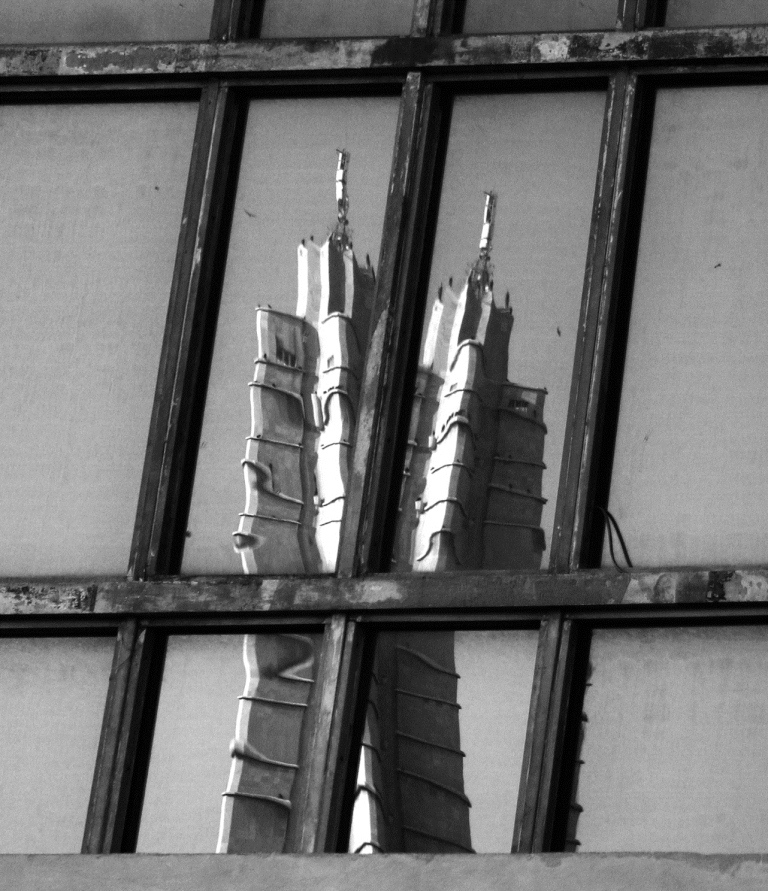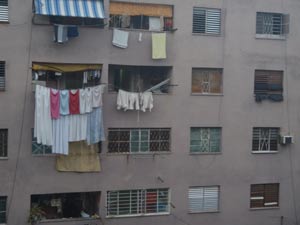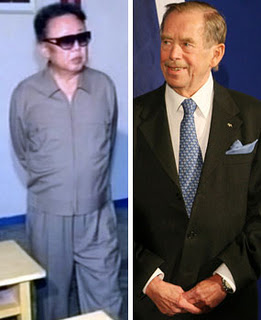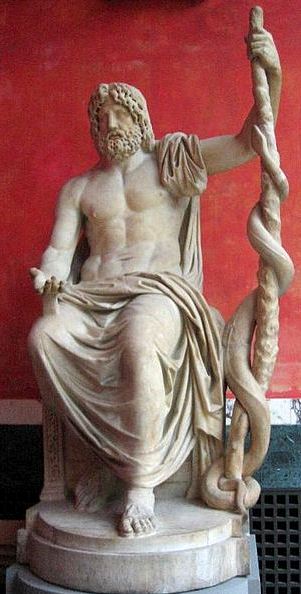
My small end-of-year tribute to the commentators
Water* falls from the balconies. It’s midnight and sonorous waterfalls spill from the windows and doors that give on to the street and terraces. It is the overflowing liquid of a slow scrubbing, the residue of a national bath taken under tossed buckets and without soap. The body of the country badly washed, with filth here and frustrations there, smelling of sweat but still with the coquetry of talcum-powdered armpits, perfume over the stench, an elegant handkerchief wiping the forehead. If that torrent of midnight could talk, if instead of ending up on the asphalt and the on-lookers it could say something. It would be a scream, a death rattle. Water has been a permanent feature of every New Year’s Eve, the most constant. When there was no pork, no tomatoes, when even a pound of rice cost half a month’s salary, we still had this elemental and complex liquid to get rid of the anger, the frustration, the fear. Parents spread the food out on the plate to make it look like more, but when the time came to take a bucket and throw its content into the darkness, no one skimped. It was full, overflowing, like our monotony.
A few days ago on TV a white-coated scientist explained that water has memory, it carries the impressions and traces of where it has been. Thus, the streams that run every Saint Sylvester Night* by our facades give us away. If we put them under the scrutiny of a microscope that would reveal particles in the shapes of paddles and rafts, molecules that have adopted the profile of a mask, of a red card that some prefer to hide in the back of a dresser drawer. It carries our morning grimace, the sound of our knuckles in the washtub, the bubbling of water boiled for tea. Every drop of this substance is the most complete report that can be written about us today. The journey through the plumbing, the oxidation and holes of some; the new ones of plastic and teflon. The faucet that turns on with a single touch and another fixed with wire so it won’t drip all night. And, later, falling on the warped metal plates of many, or aerated by pressure above the pristine dinner service in some house in Atabey.
The child is bathed in a basin because the suds must then be used to clean the floor, and the bent-backed retiree drags a water cart from the hydrant to the shack where he lives. The jacuzzi jets in some hotel, the stillness of of the blue waves of one of those swimming pools that can only be seen on Google Earth, so hidden are they behind the hibiscus hedges and watchdogs of certain residences. It is not the same water. Evaporating in a pool from which a stray dog might drink, making a wet spot on a roof that won’t last another year before it falls in. That making concentric circles caused by the voice of the interrogator in some cell in Villa Marista.** “Do you want a drink? Are you thirsty?” A question and the prisoner knows that a sip of “that” might make him sing like a canary, or give him a crushing pain in the chest. But there is also another, cold with ice that we are offered on entering the home of a friend. The newcomer wants to know if it is boiled so as not to be left with amoeba that will remain for years, but prefers the risk to showing his distrust. Water with honey and egg white that dampens our feet in any doorway in Reina Street, because the “bad” must be thrown out, to put little footprints or droplets in the street is all the same.
And then, in unison, without being advised or ordered by anyone, we take a pot, a bucket, and wait until the clock strikes twelve. Our most reliable and free ritual of every year, the baptism with which we try to make this island ready for the twelve new months that lie ahead. But the water doesn’t reach far enough, it is not enough to cleanse and expel the accumulated waste. Purification is far from complete. We have to repeat it every December 31st, eager to empty the contents of our containers at the exact second of the new day. The pools down below continue to reveal us, the torrent speaks and in these diminutive atoms of hydrogen and oxygen we leave the mark of our desires. The most complete account of our aspirations will disappear in the morning, dried up by nothing more than the rising sun.
Translator’s notes:
*It is a Cuban tradition to throw a bucket of water out the door at midnight on New Year’s Eve to wash away all the bad things of the year that is ending. New Year’s Eve is Saint Sylvester Night in Cuba and other countries with a Catholic tradition.
**Villa Marista: Headquarters of Cuba’s security services/political police.

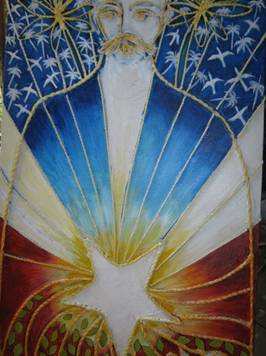
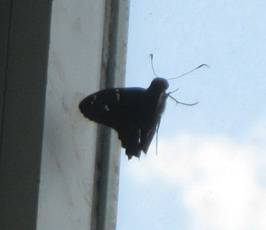





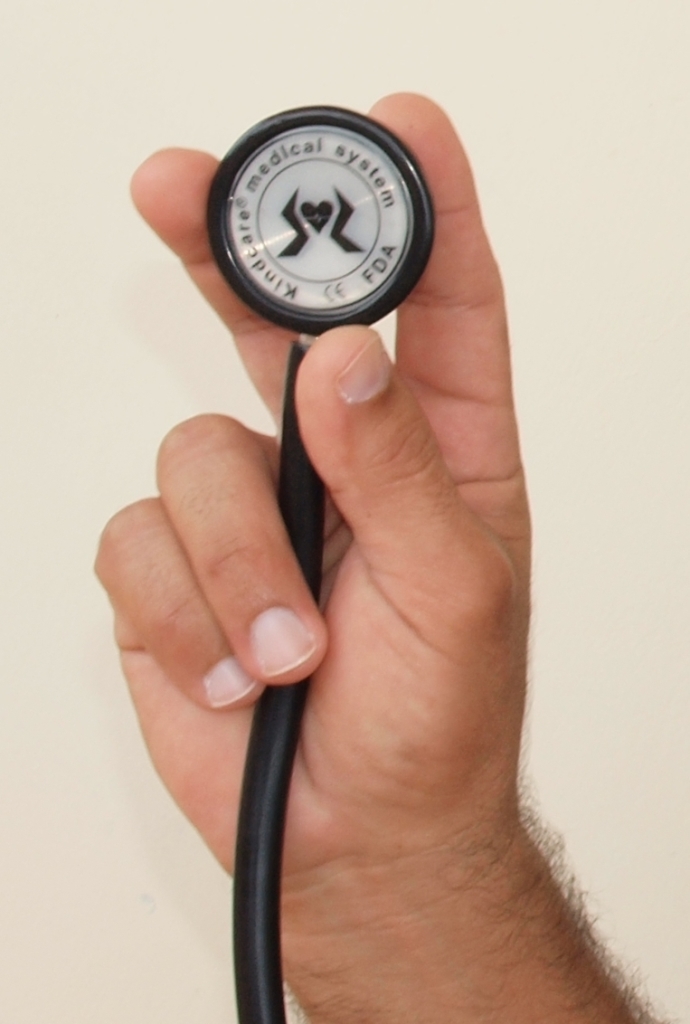
 It is the determination of the literary colonels of the Cuban Book Institute. Five years ago, they officially ceased inviting me to artistic events, competitions, and public readings. An edict, coming from the ditches of Villa Marista and aimed at cultural institutes, has automatically excluded me from any sort of intellectual debate. Still, to this day, no one has showed me an official document which prohibits cultural promoters from including me in the learned spaces of my generation. I know it is just a whisper, a card slid under the table. There a dozens of my friends and acquaintances which have already been visited by the “colleagues of Security”. Almost none of them have been tactically pressured, but they consider the warnings to be like yellow cards, and just like in soccer, some have challenged the referee and have reached for the red card.
It is the determination of the literary colonels of the Cuban Book Institute. Five years ago, they officially ceased inviting me to artistic events, competitions, and public readings. An edict, coming from the ditches of Villa Marista and aimed at cultural institutes, has automatically excluded me from any sort of intellectual debate. Still, to this day, no one has showed me an official document which prohibits cultural promoters from including me in the learned spaces of my generation. I know it is just a whisper, a card slid under the table. There a dozens of my friends and acquaintances which have already been visited by the “colleagues of Security”. Almost none of them have been tactically pressured, but they consider the warnings to be like yellow cards, and just like in soccer, some have challenged the referee and have reached for the red card. I’m not referring to John Steinbeck’s novel The Grapes of Wrath written in 1939. I’m talking about the culinary experience that led me to the farmer’s market: I decided to make a cold salad with a pasta base. For any mortal in another country, it’s probable they would have the option of buying the dish ready-made, or if they wanted to make it at home, of buying all the ingredients at one time, or perhaps making a second trip because they forget something, but everything would be available.
I’m not referring to John Steinbeck’s novel The Grapes of Wrath written in 1939. I’m talking about the culinary experience that led me to the farmer’s market: I decided to make a cold salad with a pasta base. For any mortal in another country, it’s probable they would have the option of buying the dish ready-made, or if they wanted to make it at home, of buying all the ingredients at one time, or perhaps making a second trip because they forget something, but everything would be available.